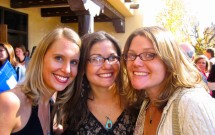
As I reflect on the recent guilty x3 verdict of Dereck Chauvin in the murder of George Floyd, I hope Mr. Floyd’s family feel some relief with the jury’s decision, but I know from experience working with survivors of violent crime that the outcome of a trial does not erase loss or stop the pain of grief. Trauma and grief live in the body, and in the bodies of the generations of black and indigenous people of color (BIPOC) living the legacy of 400-plus years of slavery, genocide, oppression, and injustice in America. When those of us who come from backgrounds of white privilege dismiss this reality, we fail to take responsibility for our role and responsibility in the cycle of intergenerational trauma. This dismissal creates, promotes, and allows it to continue. When we do not listen to and understand the stories and experiences of BIPOC in this nation, we perpetuate a culture of denial, and become complicit in the institutions that continue to oppress and violate.
In her book, “African Americans and Jungian Psychology,” black author and Jungian analyst, Fanny Brewster, calls for greater awareness and accountability. She writes that Jung’s dismissive and denigrating attitude toward “primitive” African and Native American culture has contributed to a long lineage “of quietly turning away” from racism in American Analytical Psychology. This denial of the polarization between black and white race relations in this country has created a split consciousness that Brewster describes as a “racial complex” that both perpetuates, and is perpetuated, by ongoing violence, oppression, and hate. Brewster suggests that racism isn’t likely to go away as an “archetype,” or energetic force, for it is based in the victim-perpetrator polarity and a human need to “other” another in order to strengthen one’s own ego. However, she also holds a candle of hope. She writes that despite Jung’s own racist views and the failure of the American Jungian community at large to acknowledge or accurately grasp the complexity of racism in America and it’s effects on African Americans, ideas from Analytical Psychology about transference, the polarized “racial complex,” and shadow work might hold a key to a “transformational psychological experience” and a “changing consciousness” for individuals, as well as American society as a collective.
As America contends with pandemic conditions and rising awareness about institutionalized discrimination, including the oppression and violence toward the marginalized “other,” I am reminded of the value of turning inward and doing the essential work of resolving the racial complexes inside of our own psyche, for in that place of deep reflection transformation is possible. Perhaps we can break free from the enslavement of our own hearts and minds at the hands of unconscious processes, which magnetize us to adopt negative stories, and project our disowned shadow material onto those who we perceive as different from us.
Courses offered at Southwestern College are designed to excavate the unconscious, bring awareness to the unseen forces that influence our interactions, choices and behaviors, and connect us to a soul-level knowing of ourselves and our purpose. They can be used to get in touch with the roots of our complexes and shadow material, to open our hearts and minds to those areas we avoid, reject, deny or repress, so that we can see that which we have pushed aside, and integrate these disowned parts into our wholeness. Over the years, these unique protocols have been developed to serve as the experiential foundation for many Southwestern courses, and serve to help students shift into a new of looking at our selves and our life curriculum.
This morning the New York Times reported that only 1 in 2,000 police murder cases end in conviction. It would be meaningful if this one case of justice for George Floyd and his family sets a precedent for change, but let’s not be lulled back into a false sense of security the way electing a black president made us think race relations in America had been healed. We are healing, but our work is far from over, my friends. There is much shadow material that we of white privileged backgrounds must wade through and own so that we can stop projecting false beliefs and stereotypes on BIPOC.
 Southwestern College Santa Fe, NM
Southwestern College Santa Fe, NM





